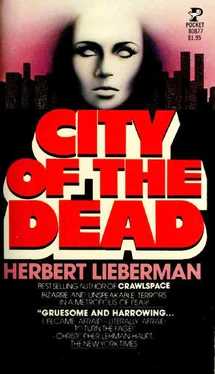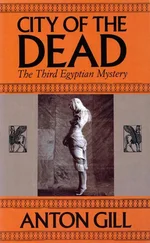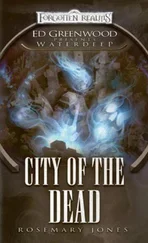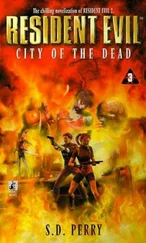Dear Dr. Griswald:
I have studied your reports and protocols with considerable interest and it occurs to me—
And so it went for several hours until he’d actually come within striking distance of the bottom of the pile. He’d typed his own replies, fully enjoying the afternoon’s work. The old communication with colleagues, the reaching out, so to speak, across the land, across the sea, to perfect strangers who’d reached out to him, sought his advice. The common bonds that joined them. That pleased him mightily. His concentration had been deep. His mind keen. He’d even felt a touch of the old vigor surging through him.
Glancing at his watch now, he is astonished to see that it is nearly 3 p.m. He rises instantly, anxious to get home. There are several errands to run before nightfall. Before his rendezvous at the bridge. There had to be food in the larder if Lolly was coming home. He had to stock up. The girl had probably been starved, or at least minimally fed, during the course of her ordeal. Then, of course, there were the paintings. Her paintings. The ones he’d bought at the Fenimore Gallery. He would hang them on the walls as a kind of surprise for her homecoming. Gleefully, he imagines her reaction when first she’d see them there, hanging throughout the house. He can barely contain himself at the thought of it.
When he’d rinsed out the beaker of coffee, extinguished the Bunsen burner, stubbed out his smoldering cigar, then put out the lights, he was at last ready to go.
Striding out the door of his office, he suddenly catches sight of a small white calling card that had been slipped beneath the outer door. On one side it read “Francis Haggard. NYPD.” On the other, in a rather bold, untidy scrawl, it said merely: “Please don’t try to go it alone.”
“No—we got no Salvation Army customers, pal. The way my customers pay bills, I’m the only Salvation Army around-here.”
“Know what you mean. Thanks a lot.”
“My pleasure, pal.”
5:15 p.m. Tenth Avenue and 50th Street.
Sergeant Edward Flynn stands outside a small neighborhood grocery that happens to sell newspapers and magazines. “QUINONES Bodega” it says in faded yellow letters on the window. Then the word “Grocery” printed in smaller letters beneath it.
Flynn stands there in the bright April sunlight scanning a list of seventy names of which Mr. Quinones was the forty-third. Incredibly, at 9:30 this morning, Mr. Stanley Charles had furnished him with a list of names. In alphabetical order, it had been scaled down from the intial hundred-odd retailers who on March 31 might have sold issue number 3118 of the Clintonian to a man who may or may not have been a Salvation Army officer.
“Don’t thank me,” snarled Stanley Charles, much beleaguered and fuming, muttering intermittently _about the “lawyer leeches” and the “tax bastards.”
“Thank the little fourteen-year-old black kid who works for me on the trucks. He’s better than all the goddamned computers put together.”
“You mean he actually worked out a system with those serial numbers?” Flynn asks incredulously.
“Yeah, but don’t ask me to explain it. He tried to explain it to me but I’ll be damned if I can understand it. Something about the order he stacks them on the truck for delivery. Anyway, he narrowed down the list of 100 or so to the bare possibilities. That’s seventy names. They’re in alphabetical order. That’s all I can do. The rest is up to you.”
And so it was. Since ten o’clock that morning he’d seen forty-three people. He’d walked up and down Eighth and Ninth Avenues between 40th and 59th Streets. Then he’d trudged as far west as Eleventh Avenue, where he could see the river and smell the warm, bilgy odors of it. He’d been to newsstands, luncheonettes, drugstores, supermarkets, groceries, subway vendors—any place where newspapers were sold. Asking the same questions and getting the same unsatisfying answers. Certainly no one recognized the serial number, which was never listed on their invoices from the distributor. And so far no one had a customer who walked around in the uniform of a Salvation Army officer.
It is quite warm now, and from where Flynn stands he can see way down to the piers on the river and the big white smokestacks of a docked Italian liner, its gaily colored pennants flapping listlessly in the breeze, and gulls screeching overhead. It makes him think of travel; foreign lands; long, white sandy beaches; palm trees waving; beautiful, accessible women—many things he’s never had.
The gentle breeze is soughing eastward off the river, bringing with it the smell of low tide. Flynn is hot and tired. His feet hurt and his underwear, sticking to his seat, has chafed a raw welt on his inner thigh.
There are twenty-seven names left on his list. He is physically incapable, he knows, of finishing the list today. But before quitting, he will see just a few more.
Next on the list is a newsstand vendor by the name of Resnikoff—Tenth and 49th. After that, Siegel’s candy store—Eleventh and 49th. After that, a grocer by the name of Salerno—Eleventh and 46th.
At that very moment, Francis Haggard is leaving the New York offices of the Federal Bureau of Investigation on East 69th Street. He’d spent the afternoon there going through mug shots, comparing prints and data with the Federal agents assigned to the Lauren Konig case.
Because of a number of remarkably similar incidents involving the bombing of public buildings in the greater Boston area, the Bureau has a theory that both Wally Meacham and Janos Klejewski are somewhere in that vicinity with a number of their cohorts, as well as with Lauren Konig. For that reason they have concentrated their search in the Boston area, going as far north as Concord, as far south as Walpole.
They had presented to Haggard that day a lot of solid evidence to substantiate their beliefs, the most impressive being a recent sighting of Janos Klejewski, positively identified on closed-circuit television during the course of a bank robbery in Boston nearly a week ago. The second link in that theory is substantiated by the Bureau’s contacts with paid informers who insist that Meacham and Klejewski, old friends from Danbury days, are back working together again.
Finally, the Bureau’s agents concluded on a somewhat more ominous note. The body of a young girl had been exhumed from a peat bog outside of Worcester three days ago. She’d been beaten, strangled, put in a sack, then submerged in the bog. She’d been part of Meacham’s coterie—in fact, his girl friend.
The force of the first two facts is impressive. The third is something the detective doesn’t even wish to contemplate. But Haggard is still dubious. He cannot refute videotape or privileged information bought at high cost from reliable sources. But all his instincts tell him that Meacham is right here in the city. It’s not merely yesterday’s fiasco in Forest Park that makes him feel that. That could have simply been a few of Meacham’s people doing business for him down in the city while he remains far north, up in New England, out of harm’s way. In fact, that would be the most sensible thing for Meacham to have done, Haggard reasons, with so much heat on for him in the city.
Still, the detective cannot let go of the idea that Wally Meacham is somewhere right around him. Under his nose, so to speak. Within spitting distance. Most important, however, and to his distinct disadvantage, he could not possibly know that both Meacham and Lolly had been at Konig’s house the night before. How could he? Konig hadn’t told him. Nor did he intend to. And had Haggard known that Konig was keeping such crucial information from him, he probably would not have blamed him. Not after the colossal blunder of the day before.
Читать дальше












